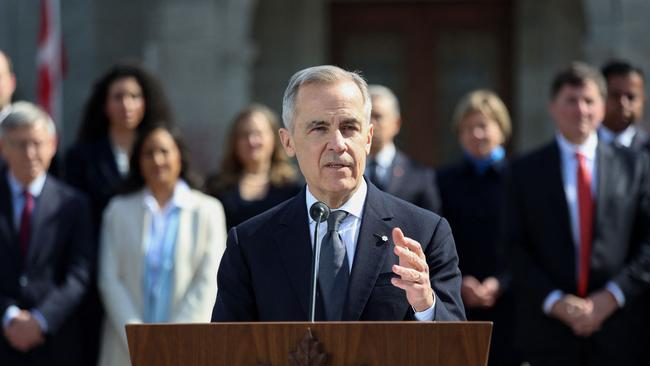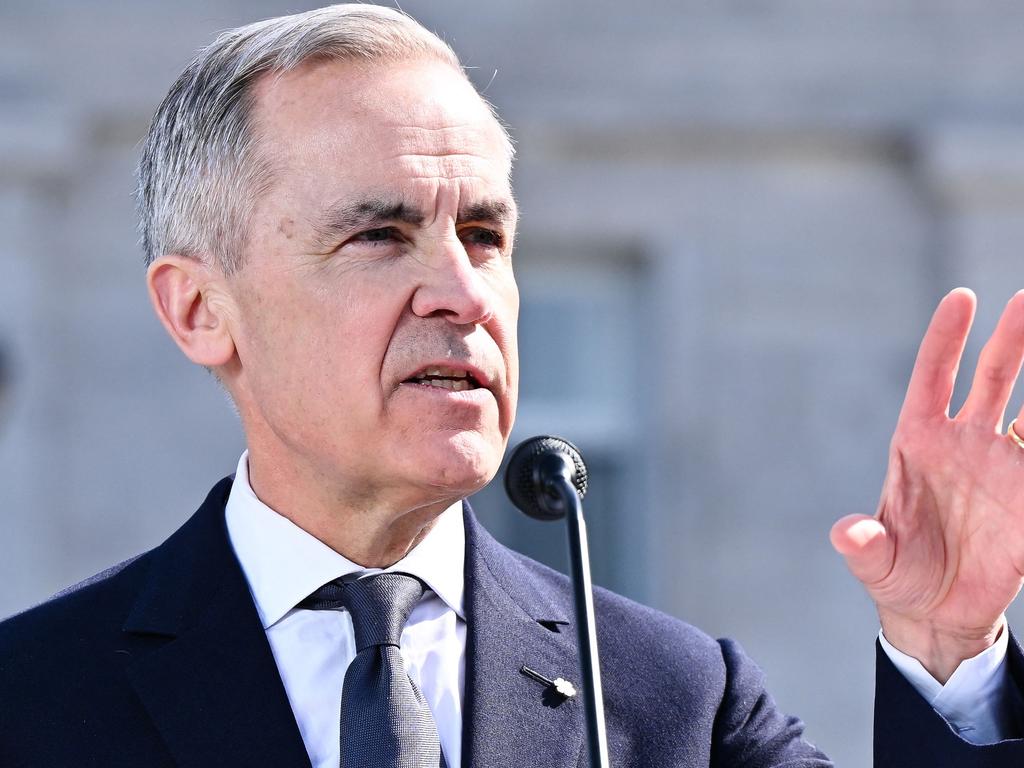
Marked out as a member of the intellectual elite of his generation, he followed their well-worn path and joined Goldman Sachs, working in the US, the UK and Japan. As international borders came down, goods and capital flowed around the world like water, and rootless young men and women feasted on the pot of gold at the End of History, Carney jetted from capital to capital, developing bond issuance strategies in post-apartheid South Africa and helping deal with the consequences of the Russian debt crisis of 1998.
His seemingly effortless facility with the modern ways of international finance and politics was allied to an effortful ambition and, in his early forties he became governor of the Bank of Canada. Then, in another illustrative first of the globalist age, he smoothly transferred across the Atlantic to take over at the Bank of England in 2013. Next, just as smoothly, he sailed back to his native land to pursue a political career.
If there is such a thing as Davos Man, he is a slight, handsome figure in a tailored suit with a clipped Canadian accent conversant in several languages and on cheerful first-name terms with every chief executive, president and prime minister. In the process of course, Carney has subscribed to all the right faiths of the globalist age: a borderless world, climate peril and woke orthodoxies – another unimaginably successful white man scolding the West for the evils of colonialism and male privilege.
Though he notionally observed the conventions of central bank neutrality during the 2016 Brexit vote, no one doubted that he viewed the campaign to leave the European Union as a product of the bigoted obscurantism of less enlightened minds; a suspicion confirmed when he told a Toronto dinner last year that the effect of the referendum had been to “tear down Britain’s future”.
But now, this acme of globalisation, this passionate advocate of a borderless world, this scourge of petty-minded sovereigntism has been called to lead a nation in the throes of a nationalist fervour.

You could not have invented a more delicious irony. Becoming prime minister of Canada in an almost self-parodying exercise in technocratic elitism – never elected to office and not even a member of parliament, he was chosen by a small number of the ruling Liberal Party members – he must now mobilise a national populist spirit against the cold realities of the big world beyond a single nation’s shores.
Moved to a rare display of anger by Donald Trump’s demand that they become his 51st state, Canadians are waving the national flag, defiantly buying Canadian, and booing The Star-Spangled Banner at hockey games.
Carney is right there with them, portraying himself as the fatherland’s last best hope, a champion of national sovereignty, a protected border, national self-determination against a continental neighbour. “We are fundamentally a different country,” he said on taking office last week. “We’re the master in our home. We are in charge.”
With trade accounting for two thirds of Canada’s economy, three quarters of its exports going to the US, the country at the mercy of fast-moving capital flows and a currency buffeted by the economic winds of its giant neighbour, Carney might have borrowed a phrase he must remember from his recent past: it’s time for Canada to Take Back Control.
Of course Carney would say his sudden discovery of the virtues of national sovereignty is prompted by something different from the nationalism he sees in Britain, Europe and elsewhere – there’s a difference between resisting a hostile takeover and declining a friendly embrace. But this is where the irony becomes even more delicious.
No one really knows what’s going on inside Trump’s head. But equally no one thinks he intends to try to take Canada by force: that did not end well last time in 1812. Instead there is a plausible theory that the endless 51st state stuff is just classic Trump negotiating maximalism for his real goal: a North American economic union.
Trump could achieve his prized economic aims of bolstering domestic US industry from an economic merger with Canada, short of political union, just as big European countries benefited from the single market.
There are many economic gains from an integrated market – synchronised regulation, removal of tariffs etc, but there’s a particular appeal for the US. Since 2010 annual US labour productivity growth has averaged more than twice that of Canada’s. But this advantage has been nullified by the depreciation of the Canadian dollar – it’s down by 30 per cent against the greenback over that time.
Fixing the currency in a single market would likely have the same effect as the way Germany’s economy benefited from the euro. It no longer had to watch as its productivity advantage over economically weaker countries was offset by currency appreciation. If a single US-Canada market involved a single or at least a fixed currency arrangement, it would be likely to reduce or eliminate the trade deficit Trump cares so much about.
This would fit with a larger objective Trump officials are said to be considering: weakening the dollar’s status as global reserve currency to make US industry more internationally competitive.
Picture it: Trump, the fiery nationalist, seeking to be the founding father of a continental economic union; Carney, the urbane globalist, stoutly defending his nation’s economic independence.
The Times







Mark Carney is the very embodiment of the globalist ideal that ruled the world for a quarter-century after the end of the Cold War. Born in the mid-1960s in the far Northwest Territories, he grew up in Alberta in the kind of place previous generations would never have left. But the brilliant kid from a large Catholic family won a scholarship to Harvard and then took a masters and doctorate at Oxford.